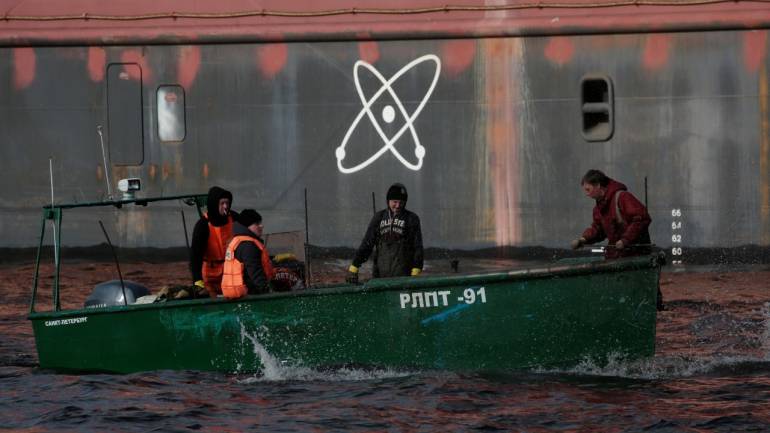India, which had an estimated 120-130 nuclear warheads as per 2017 report, now has 130-140 warheads. Similarly, Pakistan, which had 130-140 warheads now has increased to 140-150 warheads. Both countries are also developing new land, sea and air-based missile delivery systems.
Another nuclear country in Asia, China continues to modernise its nuclear weapon delivery systems and is slowly increasing the size of its nuclear arsenal. The country now has an estimated 280 nuclear warheads. In 2017 report, the number was 270.
The US and Russia still constitute a major share of approximately 14,465 nuclear weapons that exist in the world. Both together account for nearly 92 percent of all nuclear weapons despite reducing their strategic nuclear forces pursuant to the implementation of the 2010 Treaty on Measures for the Further Reduction and Limitation of Strategic Offensive Arms.
Moreover, the cold war-era rivals also have long-term programmes underway to replace and modernise their nuclear warheads, missile and aircraft delivery systems, and nuclear weapon production facilities.
“The renewed focus on the strategic importance of nuclear deterrence and capacity is a very worrying trend,” says Ambassador Jan Eliasson, Chair of the SIPRI Governing Board.
“The world needs a clear commitment from the nuclear weapon states to an effective, legally binding process towards nuclear disarmament.”
Other countries which are a nuclear state include the UK (215 warheads), France (300 warheads), Israel (80 warheads) and North Korea (10-20 warheads). The figures for North Korea are uncertain, the report said, however, there was no doubt that it has nuclear weapons.
In 2017, North Korea has made technical progress in developing its nuclear weapon capabilities, including the test of—what was claimed to be—a thermonuclear weapon, in September. North Korea also demonstrated unexpected rapid progress in the testing of two new types of long-range ballistic missile delivery systems. These testing led to a crisis in the Korean peninsula.
Another nuclear country in Asia, China continues to modernise its nuclear weapon delivery systems and is slowly increasing the size of its nuclear arsenal. The country now has an estimated 280 nuclear warheads. In 2017 report, the number was 270.
The US and Russia still constitute a major share of approximately 14,465 nuclear weapons that exist in the world. Both together account for nearly 92 percent of all nuclear weapons despite reducing their strategic nuclear forces pursuant to the implementation of the 2010 Treaty on Measures for the Further Reduction and Limitation of Strategic Offensive Arms.
Moreover, the cold war-era rivals also have long-term programmes underway to replace and modernise their nuclear warheads, missile and aircraft delivery systems, and nuclear weapon production facilities.
“The renewed focus on the strategic importance of nuclear deterrence and capacity is a very worrying trend,” says Ambassador Jan Eliasson, Chair of the SIPRI Governing Board.
“The world needs a clear commitment from the nuclear weapon states to an effective, legally binding process towards nuclear disarmament.”
Other countries which are a nuclear state include the UK (215 warheads), France (300 warheads), Israel (80 warheads) and North Korea (10-20 warheads). The figures for North Korea are uncertain, the report said, however, there was no doubt that it has nuclear weapons.
In 2017, North Korea has made technical progress in developing its nuclear weapon capabilities, including the test of—what was claimed to be—a thermonuclear weapon, in September. North Korea also demonstrated unexpected rapid progress in the testing of two new types of long-range ballistic missile delivery systems. These testing led to a crisis in the Korean peninsula.
However, in a meeting with US president Donald Trump, North Korean supreme leader Kim Jong-un vowed to work towards the complete denuclearisation of the Koran peninsula.
 India, Pakistan expanding their new nuclear weapons stockpiles: SIPRI
India, Pakistan expanding their new nuclear weapons stockpiles: SIPRI
No comments:
Post a Comment